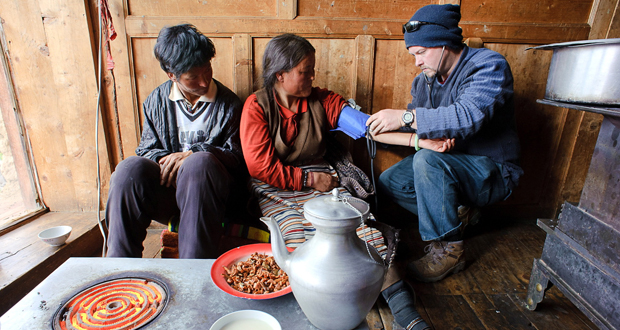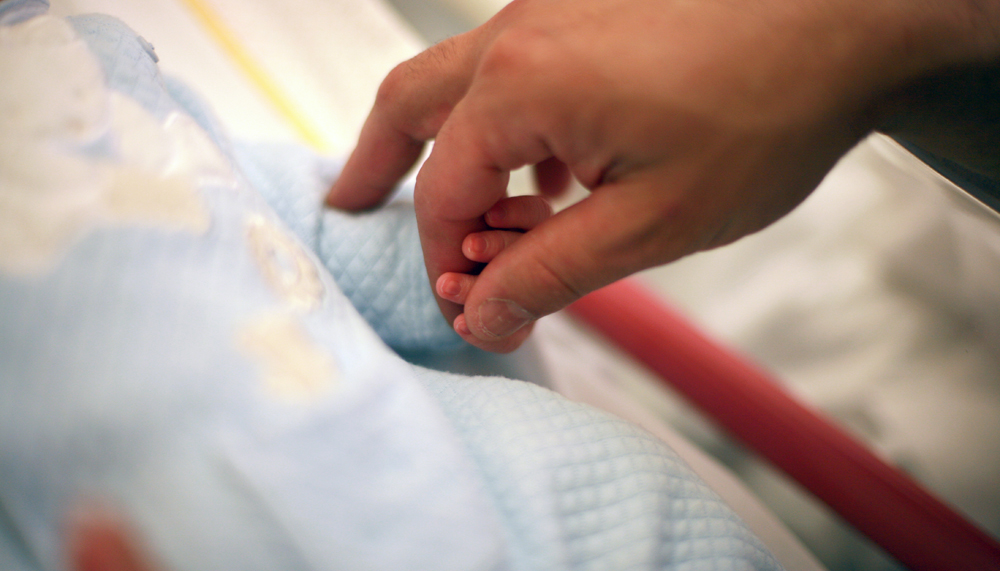11 years nursing in a Tibetan prefecture

The first time Evan Ulbricht went to China he was 17 years old and it was a big trip.
He went with his church to help out on medical, educational and agricultural projects and came back having met his future wife, found what he wanted to do for a living while gaining a love of China.
Evan grew up in Orange, NSW, and after uni, and a short stint working in Orange Base Hospital in the Mental Health unit, he and his wife – an orthoptist – upped and decided to move back to where it began for them, China.
“I actually went into nursing because I really wanted to see if I could potentially do something with this organisation in China,” he says.
“So that's how it all came about, but obviously, I didn't just decide to pack up and move to China one day. It takes years of planning, really.”
Speaking my language
I tell Evan Ulbricht I too spent some time in China, and I almost manage to say hello to him in Mandarin but bottled it.
"Give it a go," he urges through a laugh. And so, with all the confidence of a man who has learnt one or two words of another language, I attempt a simple hello.
“Nǐ hǎo, zěn me yang,” I say. Or so I think. “Yeah, yeah, zěn me yang,” he corrects me.
Evan and his wife moved to China in the early 2000s when the Internet was new, so preparing for a new language involved trips to the library and self-teaching.
“I actually did make some progress, but obviously, very, very slow, with not living in the country. But once I moved there, things moved along fairly quickly.
“And we moved over there, and we just devoted ourselves to studying Mandarin full-time for a year, just to really get a good grasp of the language,” he says, now that we’ve moved the conversation back to a more comfortable English.
Remote care
Moving to a new country can be tough, with or without the language, and China can be a shock to the senses. Horns beeping, chaotic traffic, humidity and the sheer scale of the place can make for an adjustment period. Evan and his wife faced tougher conditions still as they moved to rural China.
They lived in a place called Kunming – the capital of Yunnan Province and about a day's drive west of Shanghai – while they learnt Mandarin before venturing to a small town in the northwest of the region, in the Tibet Autonomous Region.
Evan started to work in an international clinic assisting operations on cleft lips and cleft palates, and skin grafts on burn victims.
He also visited villages affected by leprosy, helping with wound care and dealing with tuberculosis.
“Our best opportunity presented in about 2007, which was when the Disabled Federation approached our team about running a medical and rehabilitation centre,” he says.
“We essentially fitted the whole thing out, and just put mirrors, and hand rails, and made it wheelchair accessible, and yeah, just basically designed it from the inside. We had sort of a blank slate, which was really awesome.”
This medical centre provided vital free services for those with disabilities – physiotherapy, surgeries, prosthetics – which, at the time, just didn’t exist in those areas.
Working within the Tibet Autonomous Region as a foreigner was not always easy. Evan tells me that he and his wife came home for the births of each of their three children. On one occasion his return was delayed by political unrest in the region.
“You might remember, in 2008, with the Beijing Olympics, there was a lot of rioting going on in Tibetan areas,” he says.
“After the birth of our third child, we actually weren't able to go back. We had to essentially delay returning, because it was so politically sensitive.
“There was always a degree of suspicion, as to, 'Why are you here?' Being it was a Tibetan area, even though it wasn't in Tibet proper, their suspicion was that you were inspired by some type of political motive.
“But over the years, we really managed to establish quite a lot of trust. Eventually, I believe, we managed to convince some people that we were genuinely just there to help people.”
Evan remembers his time in China and the people he met fondly. He even keeps in touch with former patients to this day.
“We were received very warmly, and the people were very happy to be able to access our services. Once you were really able to help someone, it felt very meaningful, and they really became a part of your life,” he says.
“They'd always insist on having you to their home for a meal, and pouring tea for you, and often, I'd visit people in their homes, and sometimes I'd see patients in their homes and have a meal, and they really became a part of your life.
“I got heaps of my former patients that became friends on WeChat, but we still stay in touch.”
Reassimilation
The financial realities of life in rural China coupled with familial responsibilities back home eventually led to Evan and his family moving back to Australia.
After 11 years abroad, immersed in a different culture, adjusting to life back home was tough, especially when Evan's wife suffered a massive brain aneurysm not long after they returned.
But eventually things settled down and Evan has found his feet working as the tuberculosis (TB) area coordinator for Western Sydney Local Health District.
“I feel really happy where I am. I really enjoy working here at the Chest Clinic,” he tells me.
His prior experience has prepared him for his current role where TB can be complicated due to the population make up.
“In Western Sydney, there is [a lot of TB], because of a lot of the demographics of the people that live in the Western Sydney area coming from TB high risk countries.”
His cultural sensitivity and language skills also come in handy in a state where over 250,000 people were born in China.
“We actually have a lot of Mandarin speakers who don't speak English, and I'm really happy that I can use my Mandarin to help those people.
“They're always very, very shocked. Particularly if I've spoken to them on the phone, and then they present, they generally assume that it was a Chinese person that they were speaking to,” he says.
Email: [email protected]



